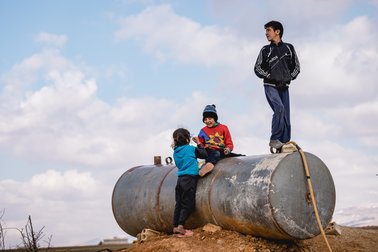Knowledge Hub
-
04/11/2024
Nurturing families: A feasibility randomised controlled trial of a whole-family intervention with vulnerable families in Jordan
Armed conflict and forced displacement can significantly strain nurturing family environments, which are essential for child well-being. Yet, limited evidence exists on the effectiveness of family-systemic interventions in these contexts. This study conducted a two-arm, single-masked, feasibility Randomised Controlled Trial (fRCT) of a whole-family intervention with Syrian, Iraqi and Jordanian families in Jordan. Here, it aimed to determine the feasibility of intervention and study procedures to inform a fully-powered RCT. Of the 62 families screened, 60 (98%) were eligible, 97% completed the baseline and 90% completed the endline. Qualitative feedback indicated specific improvements in adolescent well-being, caregiver distress and parenting, and family relationships. Findings indicate the acceptability and feasibility of intervention and study procedures, but subsequent full-scale evaluation is needed to determine effectiveness.
Read more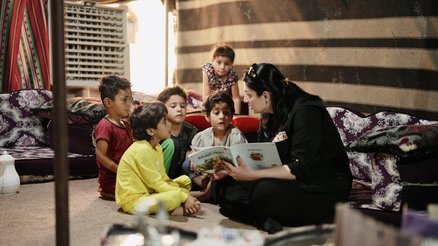
-
06/03/2024
Perspectives on competency-based feedback for training non-specialists to deliver psychological interventions: multi-site qualitative study of the EQUIP competency-based approach
The use of feedback to address gaps and reinforce skills is a key component of successful competency-based mental health and psychosocial support intervention training approaches. Competency-based feedback during training and supervision for personnel delivering psychological interventions is vital for safe and effective care. For non-specialists trained in low-resource settings, there is a lack of standardised feedback systems. This study explores perspectives on competency-based feedback, using structured role-plays that are featured on the Ensuring Quality in Psychosocial and Mental Health Care (EQUIP) platform developed by the World Health Organization and United Nations Children’s Fund.
Read more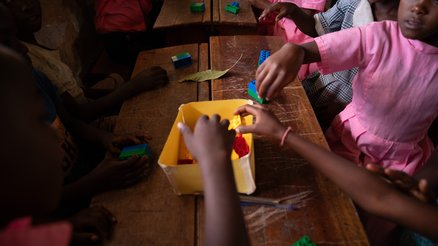
-
05/30/2024
Health system responsiveness to the mental health needs of Syrian refugees: mixed-methods rapid appraisals in eight host countries in Europe and the Middle East
Syrian refugees have a high burden of mental health symptoms and face challenges in accessing mental health and psychosocial support (MHPSS). This study assessed health system responsiveness (HSR) to the MHPSS needs of Syrian refugees, comparing countries in Europe and the Middle East to inform recommendations for strengthening MHPSS systems. To do so, it used a mixed-methods rapid appraisal methodology guided by an adapted WHO Health System Framework was used to assess HSR in eight countries (Egypt, Germany, Jordan, Lebanon, Netherlands, Sweden, Switzerland, and Türkiye). Overall, it finds all eight host countries struggle to provide responsive MHPSS to Syrian refugees. Strengthening the mental health workforce (in terms of quantity, quality, diversity, and distribution) is therefore urgently needed to enable Syrian refugees to receive culturally appropriate and timely care and improve mental health outcomes.
Read more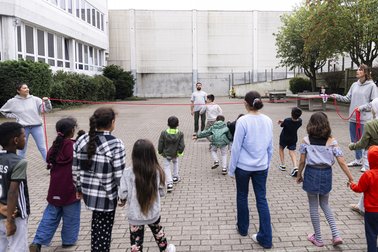
-
05/30/2024
Validation of Arabic versions of the child psychosocial distress screener and pediatric symptom checklist for young adolescents living in vulnerable communities in Lebanon
In humanitarian settings, brief screening instruments for child psychological distress have potential to assist in assessing prevalence, monitoring outcomes, and identifying children and adolescents in most need of scarce resources, given few mental health professionals for diagnostic services. Yet, there are few validated screening tools available, particularly in Arabic. This study translated and adapted the Child Psychosocial Distress Screener (CPDS) and the Pediatric Symptom Checklist (PSC) and conducted a validation study with 85 adolescents (aged 10–15) in Lebanon. Overall, it finds the Arabic PSC and CPDS are reliable and valid instruments for use as primary screening tools in Lebanon. Further research is needed to understand discrepancies between adolescent and caregiver reports, and optimal methods of using multiple informants.
Read more
-
02/03/2025
Evaluating care quality and appropriateness when promoting health-care seeking for children – Authors' reply
The authors reply responding to comments and concerns relating to evaluating the effectiveness of the Community Case Detection Tool (CCDT) to promote mental health help-seeking among children in refugee settlements across Uganda
Read more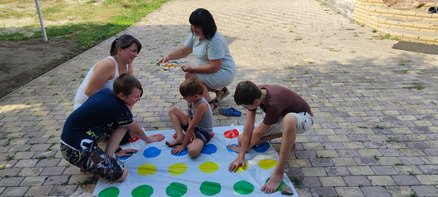
-
12/20/2024
Data-driven supervision to optimize the effectiveness of proactive case detection for mental health care among children: a proof-of-concept study
This proof-of-concept study evaluated an optimization strategy for the Community Case Detection Tool (CCDT) aimed at improving community-level mental health detection and help-seeking among children aged 6–18 years. The optimization strategy, CCDT+, combined data-driven supervision with motivational interviewing techniques and behavioural nudges for community gatekeepers using the CCDT.
Read more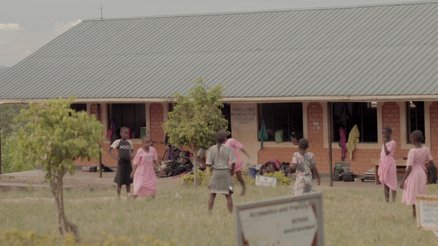
-
12/12/2023
Implementing a Non-Specialist Delivered Psychological Intervention for Young Adolescents in a Protracted Refugee Setting: a Qualitative Process Evaluation in Lebanon
This study was conducted as part of an RCT of the Early Adolescents Skills for Emotions (EASE) psychological intervention for young adolescents with elevated psychological distress (predominantly with a Syrian refugee background) in Lebanon. The aims were to conduct a qualitative process evaluation to understand stakeholder experiences and perceived impact of the intervention and identify barriers and facilitators for implementation, and secondly to explore considerations for scaling up. Eleven key informant interviews and seven focus groups were conducted with 39 respondents including adolescent and caregiver participants, trainers, providers, outreach workers, and local stakeholders. Data was analyzed using inductive and deductive thematic analysis. Respondents perceived the intervention to be highly needed and reported improvements in adolescent mental health and wellbeing.
Read more